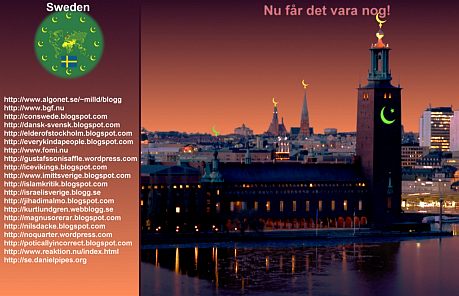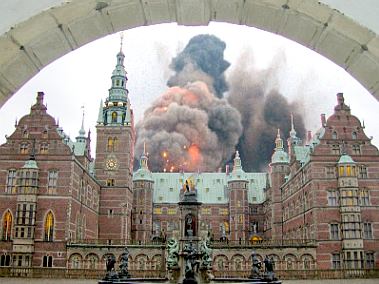He wrote me a couple of days ago to let me know that he had written an article on the recent Jokela school massacre which he subsequently translated into English.
Tundra Tabloids covered the Jokela shootings the day they happened, and here’s a news story about the incident from the November 7th edition of the English-language version of Helsingin Sanomat.
It’s no surprise that Finland, like most other modern Western democracies, responded to the school shootings with a move to crack down on guns. Jussi Halla-aho has his opinions on what is happening; his article is posted below (see the original on his website to find all the hyperlinks).
Inter Arma
by Jussi Halla-aho
In the wake of the Jokela School Shooting I have an urge to say a word or two in defence of guns and gun ownership. Someone may find this tasteless, but I consider it much more tasteless that our fanatically anti-gun press, led by Helsingin Sanomat, is making shameless use of the Jokela massacre to stir up hysteria and push their own goals.
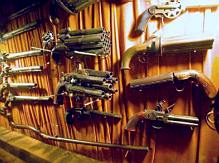 We have seen this happen before in Britain after Dunblane, in Germany after Erfurt, in Australia after Monash University, etc. Following an atrocity the pro-control lobby makes a swift attempt to utilize the understandable panic to achieve their predefined goal, a ban on private gun ownership. They strike immediately, so as not to give people time to cool down and put things in their proper context.
We have seen this happen before in Britain after Dunblane, in Germany after Erfurt, in Australia after Monash University, etc. Following an atrocity the pro-control lobby makes a swift attempt to utilize the understandable panic to achieve their predefined goal, a ban on private gun ownership. They strike immediately, so as not to give people time to cool down and put things in their proper context.Helsingin Sanomat asks in its reader survey whether there should be a total ban on private gun ownership. (For the current legislative situation, see Wikipedia.) The paper has also, rather artificially one might say, linked the Jokela incident to the on-going dispute between Finland and the EU Comission on the right of minors between 15 and 17 years of age to possess firearms and use them independently for hunting and target shooting.
Let us ponder for a moment on these proposed prohibitions and restrictions. They imply an attack against existing rights (private gun ownership) and private property (privately owned firearms), that is, tough measures from both a juridical and an ethical point of view. Before such steps are taken, at least three questions must be thoroughly considered:
a) Is the proposal feasible? For instance, are the costs of implementation in any proportion to the potential profit?
b) Is the general good obtained in any proportion to the damage caused to the individual?
c) Does the measure address the problem? That is, is it realistic to expect that the measure affects the problem that we wish to solve?
Let us begin with a). What does it mean to ban private gun ownership? Does it mean that 1) the authorities stop issuing new licences now, but those that were issued prior to the ban remain valid; or that 2) the existing licences are revoked and the guns in question are confiscated?
If we choose the option 1), we won’t achieve anything. Somebody who does not know much about guns may not realize it, but firearms do not compare with digital cameras or television sets, which have a very limited service life and break down within ten years from the moment of purchase. Firearms are fairly simple mechanical devices, built from tough materials, whose functional life span, with low levels of use and proper maintenance, may reach hundreds of years. They can be repaired, serviced and even built from scratch with simple hand tools. If gun licences cease to be granted, firearms dealers will be out of business. When that happens, there will be no ammunition available. With no ammunition, the existing guns will be used less and less, which, in turn, decreases their natural wear and thus increases their life-expectancy.
If we opt for 2), we must figure out a procedure for taking away guns from their owners. Confiscating legally acquired and legally kept private property by retroactive legislation is extremely difficult, owing to the general laws protecting private property. What might come in question is the expropriation of the guns against their market value.
Another thing that may be unclear to someone not familiar with guns is that firearms are expensive devices. Huge amounts of money has been invested in them. Their prices vary between 100 Euros and thousands of Euros. At the moment there are some 1,600,000 licenced and privately owned firearms in Finland, of which about 80 per cent are hunting weapons, that is, shotguns and rifles. Let us present a very moderate estimate that the average price of a privately owned gun in Finland is 300 Euros. It is likely to be more.
The mere condemnation awards would cost our government a minimum of 480,000,000 Euros. (The annual state budget is around 30 billion Euros.) Following the expropriation, something would have to be done with one and a half million guns. They could be either stored, destroyed or sold. Selling the guns abroad would hardly be acceptable, given that this would mean just transferring the problem that was supposed to be solved by the expropriation. Storing a million and a half firearms would mean horrible construction and security costs, not to mention the permanent security risk involved. Destroying the guns would likely cost even more. Firearms are not just metal scrap that can be tossed into a melting pot. They consist of heavy metals, light alloys, wood, plastic and various composite materials. They would have to be disassembled manually, one by one.
Where, exactly, would this money come from?
Another possibility, and the one undoubtedly favored by the hoplophobic Left, would be to confiscate the guns without compensations. That would serve those trigger-happy Rambos right! However, the authorities must act within the limits set by the law. The confiscation of legally acquired and kept property without compensations would require wrecking the entire legislation protecting private property. Such a reform would not have a chance of passing the parliamentary process. Why? Because there are guns in more than a half of the Finnish households, and these households consist of people who vote.
- - - - - - - - -
Even if a law enabling the confiscation did pass the legislative apparatus, the guns could not be taken. By becoming a thief the state would lose its legitimacy in the eyes of gunowners. A significant portion of the to-be-confiscated guns would “disappear”. On the eve of the Confiscation the police would file hundreds of thousands of reports on “stolen” and “lost” firearms.
To make it simple and short: There are so many privately owned firearms in Finland that private gun ownership cannot be banned in any meaningful manner. Gunowners can, of course, be succesfully harassed with different measures, but from the point of view of the ultimate goal, a gun-free society, they are meaningless.
The private guns, thus, cannot be confiscated. Let us then move on to the point b): why they should not be confiscated.
If there are a million bathtubs in the country, it is a mathematical inevitability that someone will drown in one. If there are 1600,000 privately owned guns and 700,000 gunowners in the country, it is a mathematical inevitability that sooner or later at least one firearm will find itself in the hands of a criminal or a lunatic. It is clear that by tightening our gun laws we can avoid a certain number of accidents or crimes. It is, indeed, one of the eternal arguments of the pro-control folk that if restriction X prevents even one loss of life, it is worth it. It is difficult to counter this argument because any resistance will provoke hysterical shouting and questions like: “Are you ready to say that to the family members of those who died at Jokela?”
Perhaps I am not. I may also not be ready to advertize the statistical safety of air travel to someone who just lost their family in a plane crash. But punishing 700,000 decent citizens by confiscating their property and ending an activity that is important to them, because of a small handful of bad apples, is not proportionate. Any number of crimes is too many, but even so the damage done to decent citizens must be proportionate to the profit achievable. It may be prudent to approach this thing with parallels that excite people less than firearms which, to many, represent a mythical evil.
According to statistics, males between 18 and 25 years of age are overrepresented in traffic accidents. The number of traffic accidents could be significantly reduced by banning all unnecessary driving from this group of people. Why are we not ready to do this? Because only a small fraction of all males between 18 and 25 are responsible for the ugly statistical truth. The punishment would be collective and unfair, despite the fact that any number of children killed in traffic accidents is too many.
Most physical assaults take place at night in city centers, and most perpetrators are males between 20 and 35. The number of assaults would decrease significantly if a night curfew were imposed on the said group of males. Why are we not ready to do this? Because we would be mostly punishing innocent people. The profit would not be in a just proportion to the harm inflicted, despite the fact that any number of assaults is too many.
What about alcohol? Nothing kills more Finns than alcohol does. It destroys more families than anything else. It kills and cripples indirectly more than anything else, because it is involved in nearly all violent crime. It burdens the public health services more than anything else does. Why do we not prohibit alcohol? So much at least can be said in defence of guns and gun sports that shooting is an instructive hobby which also keeps most of its devotees out of mischief. Is drinking an instructive hobby? Are the damages caused by alcohol a tolerable price for its more wholesome effects? Is not every alcohol-related death, crime or accident one too many? Why not? Are you ready to say that to a person randomly stabbed by a drunk, or to a child of an alcoholic?
There is no coherent answer to the question concerning alcohol. Most people simply content themselves with the truth that alcohol is part of our Finnish culture. But so is private gun ownership. It has a longer continuous history in our country than alcohol has.
By forbidding hunting from minors between 15 and 17 we can possibly prevent one suicide in every two years. But at the same time, we shall deprive thousands of young people in remote districts of a healthy and perhaps the only leisure-time activity. Will they be better off drinking beer in their friends’ garages or playing war games on the Internet? Raising the minimum age for obtaining a gun licence to 20 years, as some have suggested, could have prevented the Jokela tragedy but it would not have prevented the recent shooting in Heikinlaakso (a district in Helsinki) or any other shooting of the past. A higher minimum age would be justified if teenagers between 15 and 19 years were a statistical hazard. But they are not. Pekka-Eric Auvinen was an isolated, unique case.
Banning all guns from everyone might prevent a unique crime. It probably would have prevented the Jokela massacre. But on the whole it would not lessen violent crime because nearly all violent crimes in Finland are committed with weapons other than firearms. It would not even decrease the number of gun crimes significantly because the majority of gun crimes are committed with illegal guns. By tightening gun laws we can only affect those who seek to abide the law.
In the wake of Jokela, we should not get stuck in a debate over guns. A SIG Sauer Mosquito or the Finnish gun law did not kill nine persons. Pekka-Eric Auvinen did. The gun did not make Auvinen kill. He acquired the gun in order to kill. There are, as I see, two reasons why we are talking about the instrument rather than the killer. The first one is that despite their apparent anti-American stance the Finnish (and European) Left adopt their doctrine, methods and agenda as such and predigested from the American Left. In the US, guns are a hot topic because lots of people over there are killed with guns, yet in America, too, the typical way to react is to harass the legal owners of legal guns, disregarding the fact that most gun crimes are committed with illegal and illegally owned ones. Cities and states that are characterized by gun laws significantly stricter than ours, such as Washington DC or Illinois, are black spots of gun crime, while many jurisdictions where gun ownership is not severely regulated, eg. Vermont and Alaska [and Virginia — BB], are among the safest. Gun crime in the US has to do with social and ethnic problems, not with gun laws or the availability of legal guns.
Since there is a gun problem in the US, the Finnish “progressives”, subservient to the American Left, have decided that we, too, must have a gun problem. In reality we have none. We have more guns per capita than any other European country but less gun crime than any other European country. The fact that there is a lot of violent crime in Finland is irrelevant because these crimes, as a rule, are not committed with guns.
The fact that we do not have a demonstrable gun problem disturbs our “progressives” in a terrible manner. For years they have been dying for something like Jokela to happen. So that they can yell triumphantly: “We told you, didn’t we!” This is their great moment. Like vultures they are feeding on the corpses of those who died at Jokela. As a gunowner I find that annoying. As a human being I find it repulsive.
Another reason for talking about guns, rather than the killer, is that guns and gunowners are an easy target to pour out your anger, hatred and frustration on. Similarly easy targets are computer games or heavy metal music. It is much more difficult and much less trendy to touch upon problems such as school bullying (according to the police investigations, Auvinen was bullied) because anti-gun people are also people who always view an evil-doer as a victim. It is much more difficult to talk about the catastrophic state of our public mental health care and school health services (according to the investigations Auvinen was suffering from mental problems). It is easy to take money from the mental patients because, on the one hand, they do not demand their rights and, on the other, the results of neglecting them show with a delay. A politician who only worries about the next elections is not interested in issues that have little immediate visible effects on anything, regardless of how severe the long-term impact on society will be.
In spite of what happened at Jokela, we do not have a gun problem. We do have other problems, but addressing them would require money and political will. Bringing knives or firearms into schools could be made more difficult by using guards or metal detectors, but such measures are a no-no to the self-proclaimed intellectuals because they would be “simplifying the problem” or something like that. The authorities that grant firearms licences should have an access to the mental record of the applicant, but this is a big no too because these intellectuals resent some, selected aspects of a police state. The licence authorities should be properly trained and instructed. Auvinen obtained his permit by virtue of having joined a Helsinki shooting club a few months before but without having visited the range even once. The law authorizes the police to consider whether the applicant has demonstrated his shooting hobby in a reliable manner. The Tuusula police made a clear mistake, the law itself is not to blame.
A lot of things could be done if there was political will. Even so, we cannot prevent all crimes. For decades the Finnish criminal politics have been based on the idea that the criminal is a victim and the crime is a reaction to influence from the social environment. We have lost our ability to understand that there are people who commit crimes, totally regardless of what the surrounding society does or does not do, because they are inherently stupid, crazy or evil. The world has seen all kinds of societies and legislations, but a crimeless society does not and will not exist. There will always be Auvinens who kill people out of their own will, their own motives, and using those instruments that are available. The society can only determine how, if at all, it wishes to punish them for their actions. It can also determine how, if at all, it allows the potential victims to defend themselves.


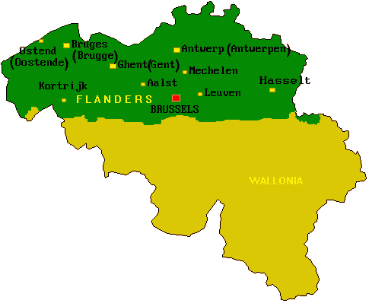
 Most readers are probably familiar with the issue. The plan is for a huge and imposing edifice, financed by Wahhabi money and implemented through the proselytizing organization
Most readers are probably familiar with the issue. The plan is for a huge and imposing edifice, financed by Wahhabi money and implemented through the proselytizing organization  All across the West, in virtually every country except for Japan and some of the recently-liberated former Communist countries in Central Europe, immigration from the Third World has accelerated enormously.
All across the West, in virtually every country except for Japan and some of the recently-liberated former Communist countries in Central Europe, immigration from the Third World has accelerated enormously.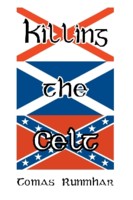 Killing the Celt is a collection of short fiction, metafiction, and nonfiction pieces that include Celtic history, social and political satire, travel narratives, pop-culture musings, and memoir. The book’s thirty one essays and stories are framed within brief histories of the six Celtic holocausts, and bound together with a Celtic sensibility marked by dark, anarchic humor; a love of place, time, and culture; and a steely distrust of authority.
Killing the Celt is a collection of short fiction, metafiction, and nonfiction pieces that include Celtic history, social and political satire, travel narratives, pop-culture musings, and memoir. The book’s thirty one essays and stories are framed within brief histories of the six Celtic holocausts, and bound together with a Celtic sensibility marked by dark, anarchic humor; a love of place, time, and culture; and a steely distrust of authority. Just three days after Norway’s highest court upheld a state expulsion order against Mullah Krekar, the man who’s considered a threat to the nation’s security has made new threats against the country that’s harboured him for years.
Just three days after Norway’s highest court upheld a state expulsion order against Mullah Krekar, the man who’s considered a threat to the nation’s security has made new threats against the country that’s harboured him for years. A compelling demonstration of this sad fact can be found in the seemingly innocuous Pledge of Allegiance, which was originated in 1892 by Francis Bellamy. Many Americans are unaware of the fascist origins of the Pledge.
A compelling demonstration of this sad fact can be found in the seemingly innocuous Pledge of Allegiance, which was originated in 1892 by Francis Bellamy. Many Americans are unaware of the fascist origins of the Pledge.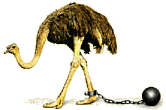 As “The Religion Of Peace”
As “The Religion Of Peace” 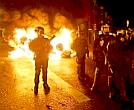 In France, the Muslim street riots of 2005 led to French politicians promising more money for the banlieus and agreeing to turn a blind eye to the Sharia courts, the honour killings and the polygamy carried out within them. In Belgium, native socialist sympathisers have allied themselves with Islam and now politically dominate Brussels, where they use this political clout to ban demonstrations protesting Islam’s growing political control in Europe.
In France, the Muslim street riots of 2005 led to French politicians promising more money for the banlieus and agreeing to turn a blind eye to the Sharia courts, the honour killings and the polygamy carried out within them. In Belgium, native socialist sympathisers have allied themselves with Islam and now politically dominate Brussels, where they use this political clout to ban demonstrations protesting Islam’s growing political control in Europe. The legislation emanating from the European Court Of Human Rights has meant terrorists wanted for questioning in Egypt and Syria are allowed to remain free in Britain, lest they be tortured if their extradition were granted, whilst Oriana Fallaci, whose passionate love for Italy and democracy was proven in her
The legislation emanating from the European Court Of Human Rights has meant terrorists wanted for questioning in Egypt and Syria are allowed to remain free in Britain, lest they be tortured if their extradition were granted, whilst Oriana Fallaci, whose passionate love for Italy and democracy was proven in her  When Jewish graveyards were desecrated in France and Germany a few years ago, the EU commissioned a report, assuming it was the work of the Neo-Nazi “right”. When it turned out, all too predictably, to be the work of the followers of Mohammed, the report was quietly shelved and replaced with one six months later, exonerating the Muslims. Or to use Oriana Fallaci’s words, “the sons of Allah.”
When Jewish graveyards were desecrated in France and Germany a few years ago, the EU commissioned a report, assuming it was the work of the Neo-Nazi “right”. When it turned out, all too predictably, to be the work of the followers of Mohammed, the report was quietly shelved and replaced with one six months later, exonerating the Muslims. Or to use Oriana Fallaci’s words, “the sons of Allah.”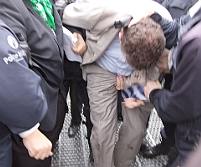 The manipulative tactics of EU politicians do not stop at mere misrepresentation; they also use their new laws to curtail free speech. The rights of Freedom of Assembly, and Freedom of Expression, as ordained by the EU, do not hold up to close inspection. The attempt to hold a demonstration in Brussels on 9/11 2007 was thwarted lest our freedom of expression interfere with Islam’s freedom not hear it. Terry Davis, the socialist Secretary General of The Council of Europe, put out the following
The manipulative tactics of EU politicians do not stop at mere misrepresentation; they also use their new laws to curtail free speech. The rights of Freedom of Assembly, and Freedom of Expression, as ordained by the EU, do not hold up to close inspection. The attempt to hold a demonstration in Brussels on 9/11 2007 was thwarted lest our freedom of expression interfere with Islam’s freedom not hear it. Terry Davis, the socialist Secretary General of The Council of Europe, put out the following  Contrast this with the surreal antics of the British police when radical imams were exposed calling for the overthrow of the West in Channel 4’s undercover dispatches
Contrast this with the surreal antics of the British police when radical imams were exposed calling for the overthrow of the West in Channel 4’s undercover dispatches  The EU passes laws criminalizing the indigenous population if they speak out, backed up by national governments that do the same. The police arrest us on the slightest pretext, yet ignore genuine hatred emanating from Islamic preachers, and our politicians appear to have tacitly accepted that peace can only be bought off via our appeasement. Living in Europe is becoming a wholly surreal experience that defies logic and reason as we slowly sink into state-enforced Dhimmitude.
The EU passes laws criminalizing the indigenous population if they speak out, backed up by national governments that do the same. The police arrest us on the slightest pretext, yet ignore genuine hatred emanating from Islamic preachers, and our politicians appear to have tacitly accepted that peace can only be bought off via our appeasement. Living in Europe is becoming a wholly surreal experience that defies logic and reason as we slowly sink into state-enforced Dhimmitude.
